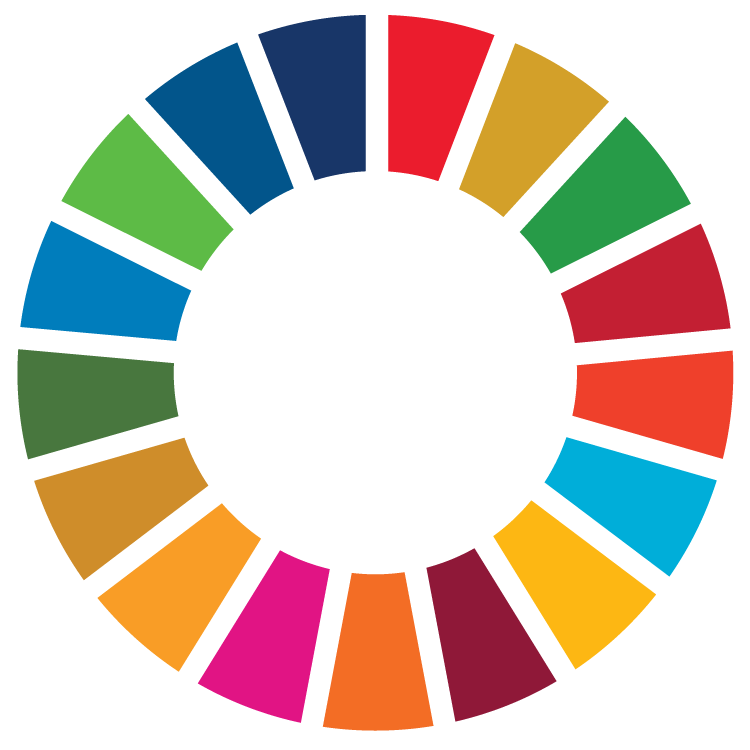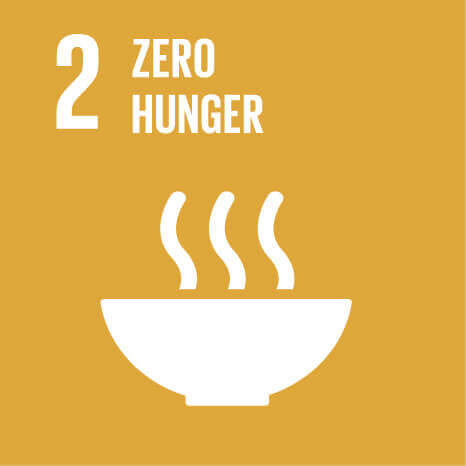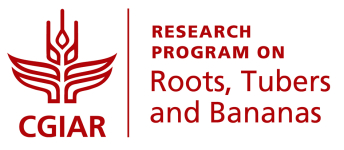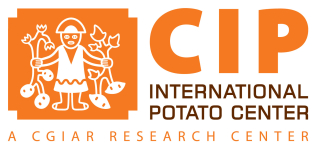Agriculture-nutrition education and extension programs foster the adoption of biofortified crops in Kenya
Published on: April 20, 2020, Submitted by Claudio Proietti on: April 8, 2020, Reporting year: 2019
Intensive agriculture-nutrition education and extension variables significantly increased early adoption of orange-fleshed sweetpotato (OFSP) varieties in an intervention in Kenya. 75.7% of respondents in a large survey reported planting OFSP varieties one year later.
Scaling Up Sweetpotato through Agriculture and Nutrition (SUSTAIN) - 2013-2019 - Final Report
For communication use
In the Homa Bay area of Western Kenya, CIP in collaboration with Local Government shared orange-fleshed sweet potato planting material and agronomic and nutrition information with pregnant women and mothers of children under 5-years old. Getting their hands on the vine cuttings gave women the ability to start growing OFSP, while the information motivated them to keep going.
The planting material was distributed by “decentralized vine multipliers” (DVMs), respected, local farmers trained to produce high quality vines. The DVMs supplied the women with one or two varieties of OFSP, while sharing advice on how to nurture the crop.
Information was packaged in other ways as well. Some women received nutrition talks, counselling and cooking demonstrations by community health volunteers (local women who had been trained by extension workers). There were also field days, like show-and-tell, where participants toured sweetpotato demonstration plots with agronomists who explained how to grow and manage the crop. FM radio stations also held talk shows in local languages. At “open day” events expert agronomists provided hands-on guidance in sweetpotato cultivation.
One year after receiving the vines, 537 women were interviewed to see if they were still planting the new sweetpotatoes. Of 372 surveyed women who received one variety during the short rainy season (the preferred season for planting sweetpotatoes in this region), three out of four were still planting OFSP, while only about one out of three who received vines in the long rainy season were still doing so. Women who had low-lying wetlands could more easily keep the crop alive over the dry season, and they were more likely to plant the new varieties a year after receiving them.
So, agronomy mattered, but so did the way information was shared. Listening to radio talk shows, attending open days and collecting vines directly from a DVM (and not from another farmer), all influenced women to continue to plant OFSP a year later. Other methods had no effect, including contact with a community health volunteer, or attending field days.
“Not all extension methods are equal. Convincing information may come in the form of a well-prepared open day, an engaging talk show in the local language, or as a bit of mentoring from a DVM who is a neighbor and farmer”, says CIP’s Julius Okello, who led the study. These insights should benefit many extension programs, not just those sharing information on good nutrition practices.
Elaboration of Outcome
This study was conducted in Nyamira, Homa Bay, and Siaya counties of western Kenya where the Scaling Up Sweetpotato through Nutrition (SUSTAIN) project was implemented (1). The project targeted households with children under 5 years of age and/or pregnant and lactating women recruited into the project at the local health facilities during their routine antenatal and postnatal visits and giving them access to OFSP vines (Kabode and Vitaa varieties) and nutrition counselling (2).
A survey was conducted with 537 respondents who received OFSP vines in 2014. 75.7% of respondents continued planting one year later. There was a much higher rate of early adoption in the short (62%) than in the long rain season (32%) (3).
A logit regression model was estimated to analyze the factors that affect/facilitate early adoption. Listening to local FM radio programs about OFSP, participation in open-day events and collecting vines from the decentralized vine multipliers are the only agriculture-nutrition education and extension variables that affected early adoption. Listening to local FM radio program and participation in open-day events results in more than a 10% increase in the likelihood of early adoption. Collecting vines from the decentralized vine multipliers, provided basic education on sweetpotato agronomy and nutrition, and they may also have served as role models leading to increased probability of adoption by 50%. Extension visits by community health volunteers did not improve the likelihood of continuing to plant OFSP. An increase in the value of livestock assets by one unit increased the likelihood of planting OFSP one year after initial dissemination by 3%, and women’s participation in salaried employment reduced the likelihood of continuing to plant orange-fleshed sweetpotato by 10%, holding other things constant. Personal characteristics of the respondents, such as age and education, had no effect on early adoption of OFSP varieties.
The data showed that 136 out of the 537 respondents (25%) gave out OFSP vines to other farmers not linked directly with the project (i.e., the indirect beneficiaries within 1–2 years of receiving them.
Findings relating to open-day and field-day events clearly highlight the importance of combining both information sensitization efforts (e.g., heath and agronomic talks) with practical demonstrations in influencing the adoption anddiffusion of biofortified crops. Second, the strong significance of visits to decentralized vine multipliers in earl adoption of orange-fleshed sweetpotato demonstrates the importance of social factors in promoting adoption of biofortified crops.
Stage of Maturity and Sphere of influence
-
Stage of Maturity: Stage 2
-
Contributions in sphere of influence:
2.1.3 - Optimized consumption of diverse nutrient rich foods
Acknowledgement
This research was undertaken as part of the CGIAR Research Program on Roots, Tubers and Bananas (RTB). Funding support for this work was provided by DFID through the SUSTAIN project.
Projects
-
Scaling Up Orange Fleshed Sweet Potato through Agriculture and Nutrition (SUSTAIN)








